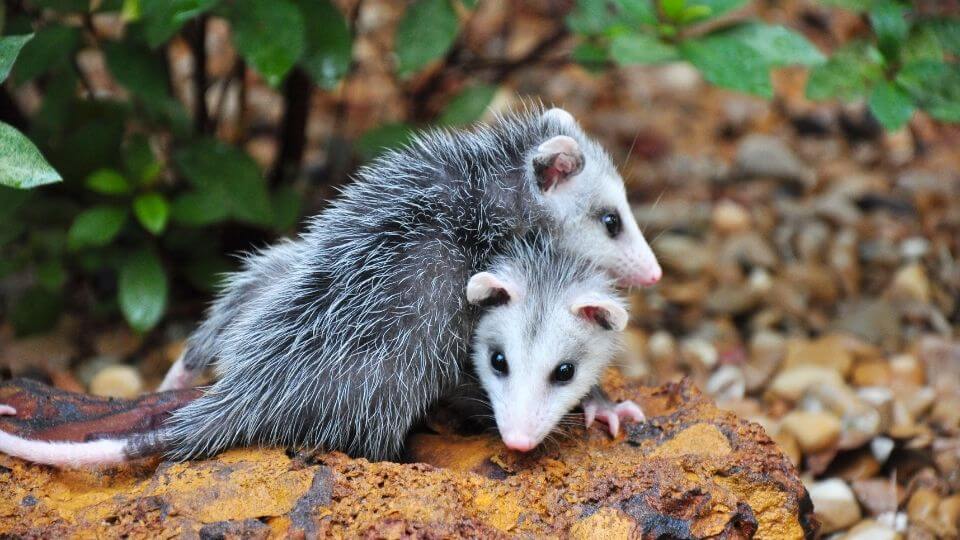Opossums only dig shallow holes to get grubs and other small insects. These hole openings usually are at least 2 to 3 inches in diameter. Other types of lawn damage would not be caused by opossums, but are likely the result of other pests.
The Virginia opossum, also known as Didelphis Virginiana, is often to blame for the lawn damage and opossum holes. While these nocturnal marsupials could be the culprits, they don’t typically cause extensive damage to your lawn.
Other small animals such as armadillos, groundhogs, skunks, raccoons, and voles could be the culprits for digging holes in your yard, lawn, or garden.
Opossums are omnivorous and feed on insects, snails, slugs, chicks, pet food, critter, and tasty fruits. This article looks at how opossums live, whether they dig holes, and how to identify opossum holes.
Table of Contents
Do Possums dig holes?
Opossums, sometimes called “possums,” are known to make their nests in several locations, generally near or in wooded areas. They could reside in the attic, under the porch, deck, barn, or between buildings in your home.
Although they have sharp claws, possums are generally lazy and do not dig their own holes. However, they will take advantage of dens and holes other small wild animals make.
Making nests under homes can damage the property’s structure, chew wires, or remove insulation. For this reason, you should look for the best repellent or possum traps to keep them at bay.
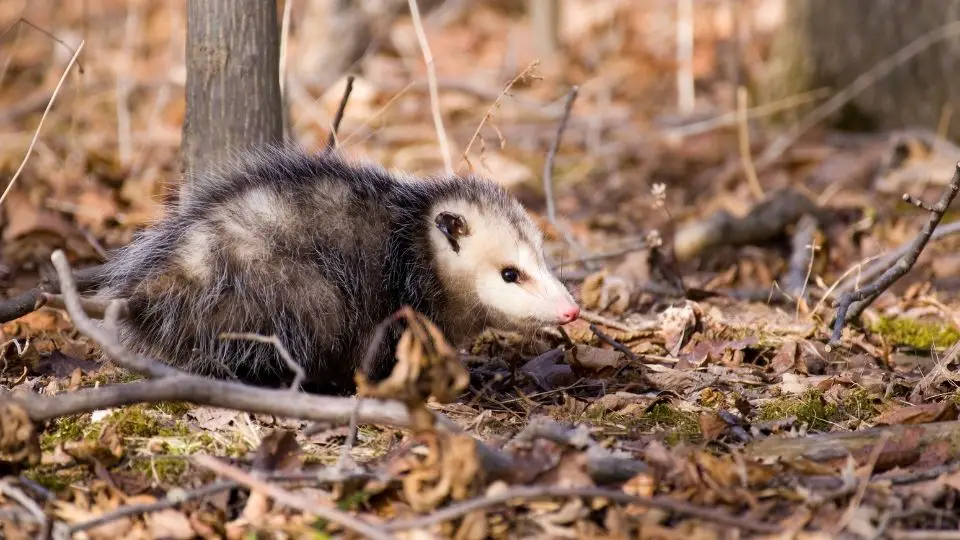
Do Opossums dig holes?
Opossums are omnivorous marsupials meaning they feed on both animals and plant matter. They’re also nocturnal, active during the night, and sleeping during the day.
They are also climbers and raid birds’ nests and eat their eggs, climb up bird feeders, or feed on crops such as apples.
These small animals are also scavengers; you’ll find them rummaging through the garbage cans to feed on the leftovers and pet food.
While opossums may be active in your yard searching for insects like cockroaches, they hardly damage the lawn as they do not dig holes. Lawn damage results from other pests as possums only dig shallow holes to get grubs and other small insects.
These hole openings usually are at least two to three inches in diameter. When you find deep holes, know opossums are not your culprit.
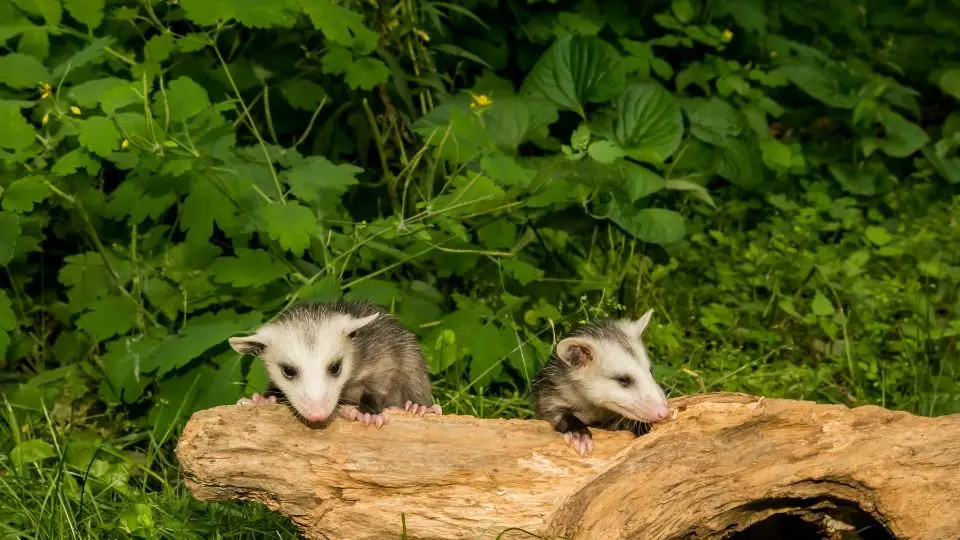
Do Opossums burrow?
Opossums are not burrowing animals but spend little time on the ground.
These marsupials usually are arboreal, meaning tree-dwelling animals that tend to stay on trees to escape predators. They have sharp claws designed for climbing and are not strong enough to dig up lawns.
Do opossum dig holes under houses?
Opossums can’t dig deep underground holes. As a result, they tend to look for holes dug by other small animals such as moles, voles, chipmunks, and rats. They take over these holes and make them their nests or dens.
Even though most animals find underground holes more insulated and safer, opossums prefer living in trees, which they find safer from most predators. In your home, they can nest in various places like the underside of the porches, decks, or stairs.
Since they do not dig holes in the ground, you can repel them from your property by covering potential entrances with mesh wire and uninhibited burrows with gravel.
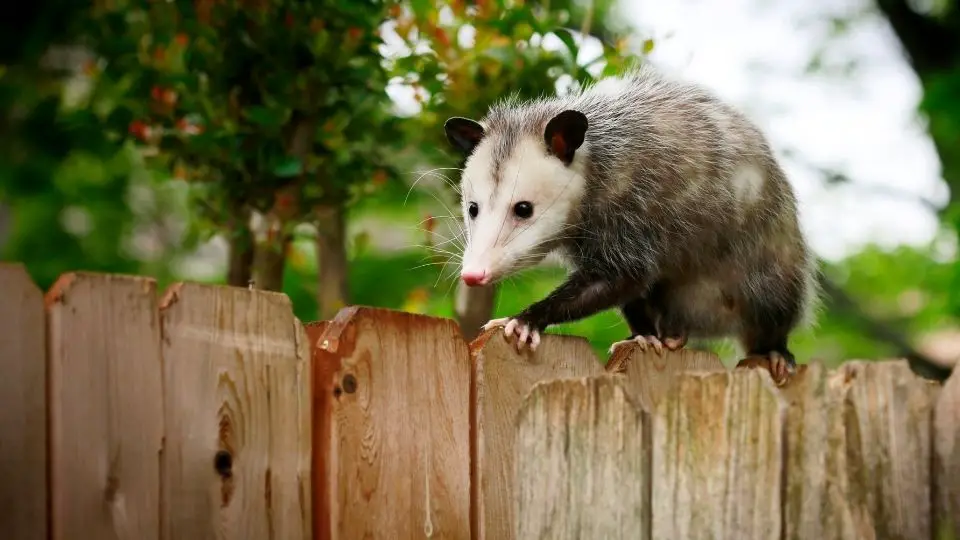
How to identify an opossum hole around your house?
Opossums have well-defined feet and sharp claws that can burrow in the ground. Although they have a diverse habitat, opossums prefer burrowing in arid or moist areas and wooden or open fields.
They could also burrow near streams and swaps and into tree cavities. It’s important to note that they prefer living alone, implying that they burrow individually instead of in groups.
Opossums are usually nocturnal, and you may be surprised to find several burrows underground when you wake up.
Once they’ve burrowed in the ground, opossums fill the den with piles of wood, rock materials, and hollow tree stumps. This keeps them warm because they have inadequate fur on their bodies to insulate them from the cold.
Possum dens can be over four feet deep and take several nights to finish and decorate. The holes are mostly shallow and at least three inches in diameter.
What to do if you identify opossum holes?
The best way to keep opossums from your property is to ensure they don’t enter in the first place by keeping all uninhabited holes filled.
If you suspect a mother opossum in the hole, it’s best to pause until she clears the den, usually two hours after dark. This is a safe time to close the hole’s opening with a straw, netting, or other fibrous materials.
This ensures the animal trapped inside can escape, but the one outside won’t get in.
Mother opossums take their pups everywhere they go, so you do not have to worry about babies being left behind unattended. However, always check for the babies before closing or filling the hole.
For a lasting barring, we recommend inserting the “L” footer.
Opossums will frequently enter your house through the pet doors. Keep them at bay by ensuring all doors to all rooms are closed.
Contrary to what many believe, opossums are not aggressive, so you can encourage them to leave your house by nudging them gently with a broom.
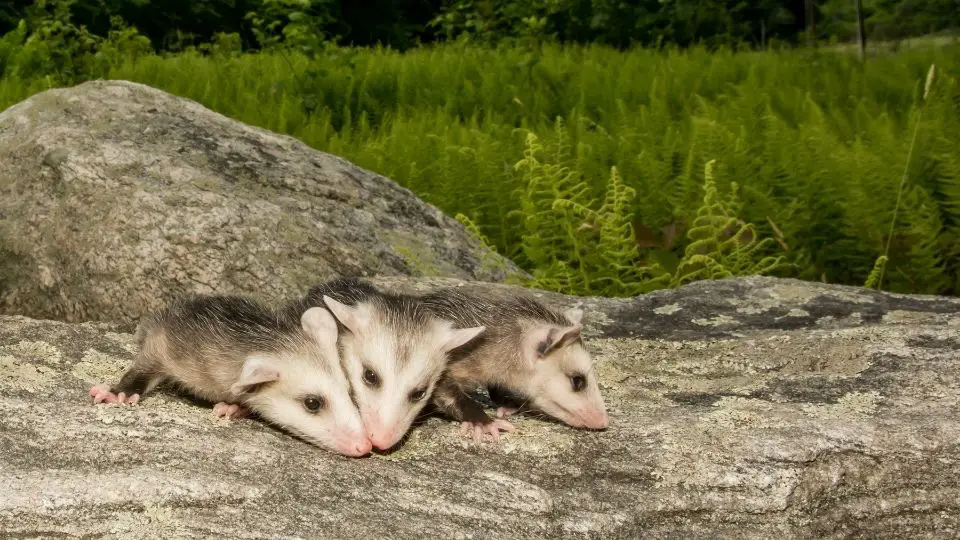
Do opossums cause rabies?
One of the most misconceptions about opossums is that they cause rabies. This is perhaps due to their drooling and open-mouth hissing behavior. However, this is simply a defense mechanism that opossums use to bluff.
Rabies is very rare in these marsupials because they have a low body temperature compared to other animals to carry the virus or pass it to other animals or humans.

